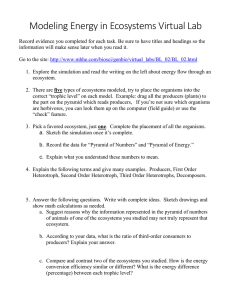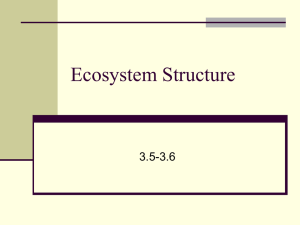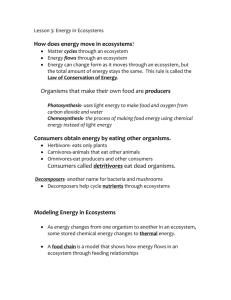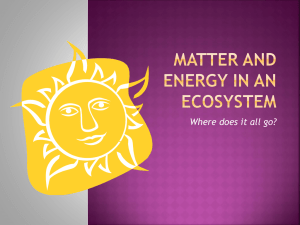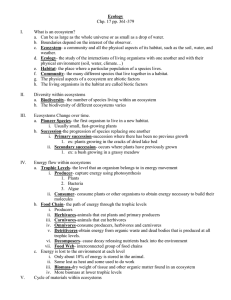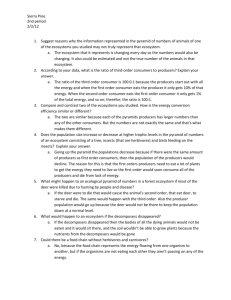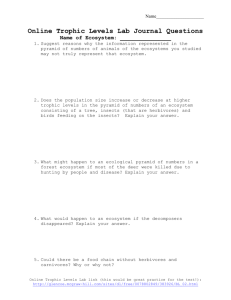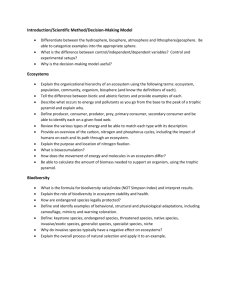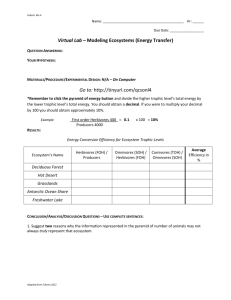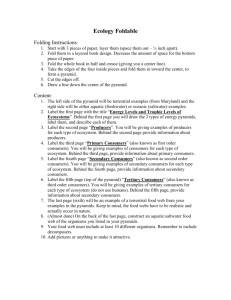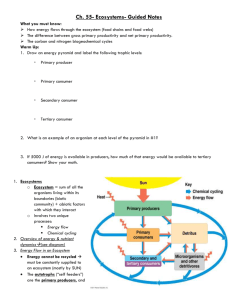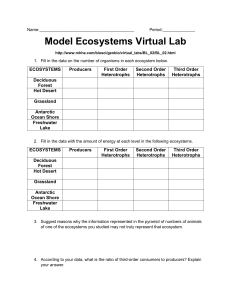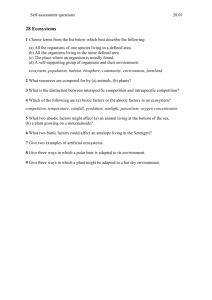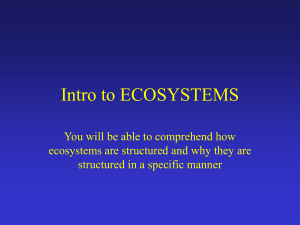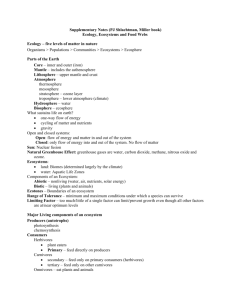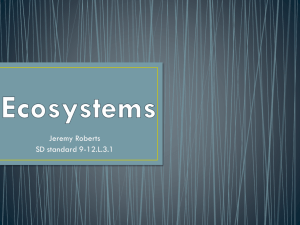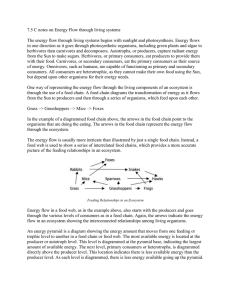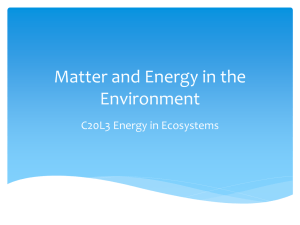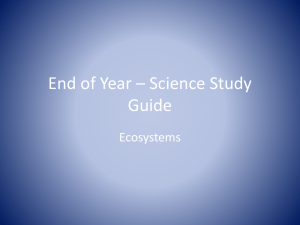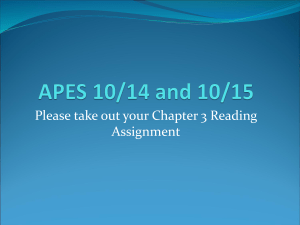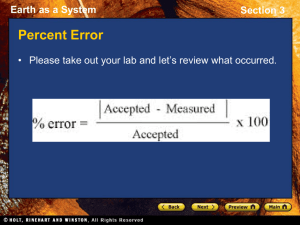Modeling Energy in Ecosystems
advertisement
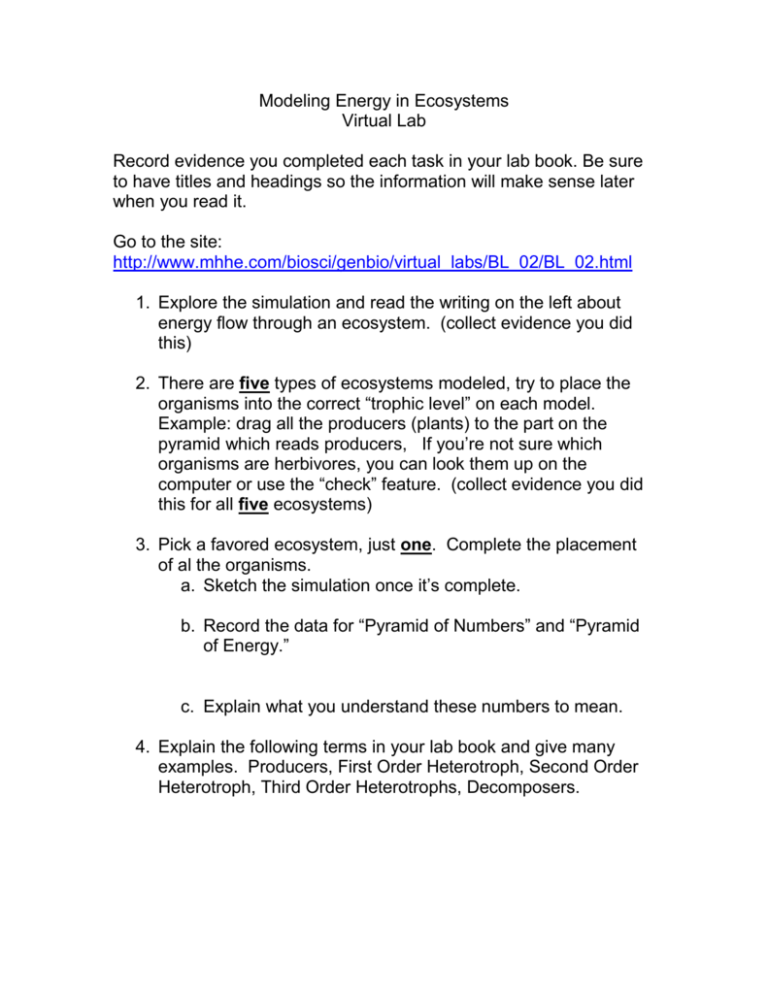
Modeling Energy in Ecosystems Virtual Lab Record evidence you completed each task in your lab book. Be sure to have titles and headings so the information will make sense later when you read it. Go to the site: http://www.mhhe.com/biosci/genbio/virtual_labs/BL_02/BL_02.html 1. Explore the simulation and read the writing on the left about energy flow through an ecosystem. (collect evidence you did this) 2. There are five types of ecosystems modeled, try to place the organisms into the correct “trophic level” on each model. Example: drag all the producers (plants) to the part on the pyramid which reads producers, If you’re not sure which organisms are herbivores, you can look them up on the computer or use the “check” feature. (collect evidence you did this for all five ecosystems) 3. Pick a favored ecosystem, just one. Complete the placement of al the organisms. a. Sketch the simulation once it’s complete. b. Record the data for “Pyramid of Numbers” and “Pyramid of Energy.” c. Explain what you understand these numbers to mean. 4. Explain the following terms in your lab book and give many examples. Producers, First Order Heterotroph, Second Order Heterotroph, Third Order Heterotrophs, Decomposers. 5. Answer the following questions in your lab book. Write with complete ideas. Sketch drawings and show math calculations as needed. a. Suggest reasons why the information represented in the pyramid of numbers of animals of one of the ecosystems you studied may not truly represent that ecosystem. b. According to your data, what is the ratio of third-order consumers to producers? Explain your answer. c. Compare and contrast two of the ecosystems you studied. How is the energy conversion efficiency similar or different? d. Does the population size increase or decrease at higher trophic levels in the pyramid of numbers of an ecosystem consisting of a tree, insects (that are herbivores) and birds feeding on the insects? Explain your answer. e. What might happen to an ecological pyramid of numbers in a forest ecosystem if most of the deer were killed due to hunting by people and disease? f. What would happen to an ecosystem if the decomposers disappeared? g. Could there be a food chain without herbivores and carnivores?
